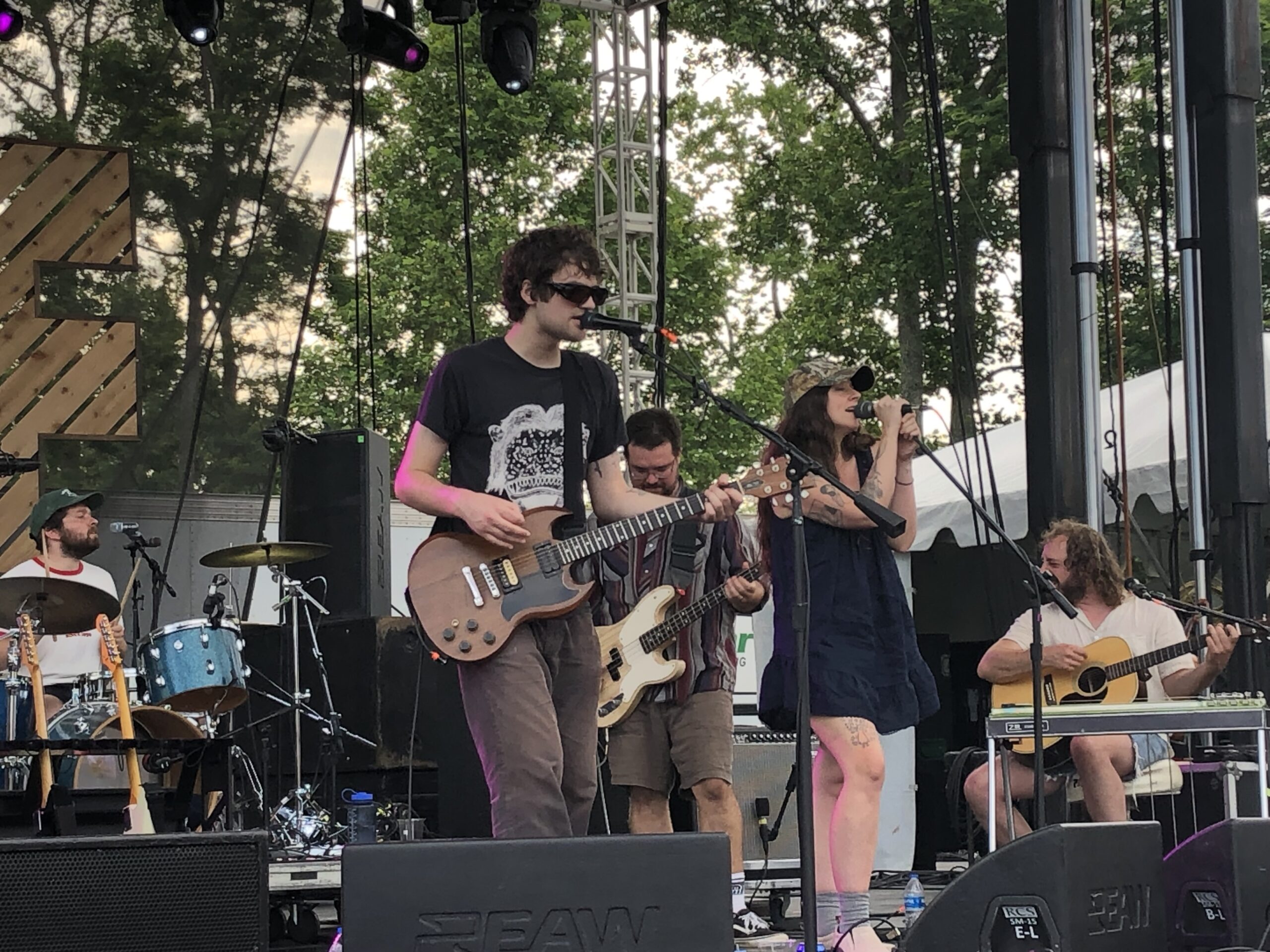I wasn’t alive when Exile In Guyville came out in 1993. Born one year later, I would eventually hear and love Liz Phair’s sole top 40 single "Why Can’t I?" on the radio -- an emblem of early '00s pop greatness from her practically condemned self-titled record. Years and years later, I’d learn about Phair’s debut release and its impact. I’d learn that Exile In Guyville serves as an hour-long middle finger to the male-dominated and chauvinistic rock world in Chicago, where Phair resided at the time. It’s a song-by-song response to Exile On Main Street from a woman’s perspective in those Stones songs -- the voice of someone so fed up with and alienated by her surroundings and eager to prove that anything you can do she can do better.
Fortunately I was alive when Liz Phair announced she'd reissue her Girly-Sound tapes holding the earliest self-recorded versions of many well-known Phair tracks and some never-before released songs. This would coincide with a short run of eight shows across the country where she'd play Girly-Sound songs for the very first time, including a stop in the Twin Cities, where I live. Phair sold out St. Paul's legendary 350-capacity Turf Club ("the best remnant of the '40s") within seconds. Opening was Nashville’s rising favorite Soccer Mommy, one of many newly popular musicians to cite Phair as an influence.
Much of Phair's work lives in somber themes like divorce and revenge, but what sets her songwriting apart is the humor she shoots into nearly everything. I’ve never witnessed a musician grin and laugh so frequently during a set, let alone a musician who has long expressed disdain for touring and playing shows, let alone a musician performing songs she wrote more than 25 years ago. When Phair and her backup guitarist Connor took the just 15-by-15-foot stage she immediately quipped that she didn't know how to turn on her guitar before plunging into "Fuck Or Die," a never-officially-released Girly-Sound-era track that mirrors the tune of Johnny Cash's "Walk The Line." "Did you know that song is about AIDS?" Phair said afterward about her song, explaining that the track, which sounds somewhat whimsical, was born from her father’s involvement in the AIDS crisis as an infectious disease doctor and the subsequent space it took up in her mind and her family's life. She later joked about how she often wonders what the Girly-Sound song "Easy" is actually about after playing it, and she beamed while singing about taking full advantage of every man she meets in "GIRLSGIRLSGIRLS" and 69-ing in the afternoon during "Go West."
As Phair breezed through Exile In Guyville opener "6'1"" and a slow, humming Girly-Sound version of "Explain It To Me" -- two songs mocking fame, men, and "famous" men -- I wondered if she knew how it made people feel to hear those songs in 2018. For the majority Gen X crowd, these were songs that defined or at least marked their 20s. For many Gen X women, Exile In Guyville was the first time they’d heard a woman sing so fearlessly and candidly about desire and dissatisfaction. I wondered how it felt to play those songs, several decades removed -- whether she was fulfilling a super-fan fantasy of the 20-something Liz Phair or still felt at home in the songs. When she discussed the bedroom tapes that "spawned her career" on stage, it sounded as if this era’s sound is a direction Phair is slowly returning to, saying that at the end of her career, she’ll be in bed "at the old folks home," playing guitar like, "Here, check this out!" To see Phair in such a small, intimate bar normally reserved for new and upcoming or local acts was disorienting, in a good way. I frequently reminded myself that this was the real Liz Phair playing, though it didn’t feel real or plausible. She was so casual, as if it wasn’t a big deal to be someone so influential who's been mostly M.I.A. for almost a decade return to the stage to play some of the most fawned-over music in the '90s rock world. It didn't feel like a reunion tour. She didn’t struggle to recreate the nontraditional song structures, brash lyrics and droning delivery that make up a Liz Phair song. Her nonchalant nature reminded me of the way you might act if you’re equal parts confident and comfortable. Phair was ahead of her time with Exile In Guyville and the Girly-Sound tapes, and she knows it. Bringing these songs back isn’t just for nostalgia’s sake. They’ve never been more relevant. It’s unfortunate how well they’ve aged. There’s a reason Phair has an entire next generation of avid listeners. We still have Soap Star Joes. Men at this show still commented on her stature and wasted time with uninvited and obnoxious song requests (to which Phair replied, "Come back in the fall, jackass," referring to her upcoming Amps On The Lawn tour). Guyville is not just Chicago in the '90s. Guyville is still everywhere, forever, until further notice. So without further ado: Welcome back, Liz Phair. We’ve missed you.
A post shared by Anthony Santini (@liveupnet) on






